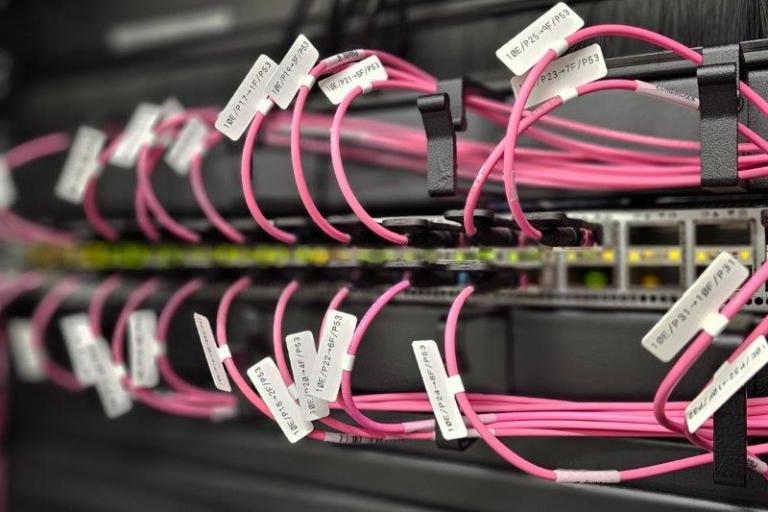Routing to optimise peering between BNIX participants
The Route Server simplifies peering and avoids having to manage lateral peering sessions. BNIX (Belgian National Internet eXchange) participants can therefore peer with other networks in a single BGP session to our route server.
The BNIX provides members who wish with a Route Server, to simplify operations, exchanges and management of the control plan.
The Route Server, to respond to the BNIX’s growing traffic
Year after year, the number of BNIX participants is growing. In 2018, for the first times in its history, the BNIX saw its highest amount of participants (64). In other words, more than 60 hosts, operators and service or content providers count on the BNIX to optimise their IP traffic via the Belgian Internet exchange point.
There are two ways to exchange routes on an IXP:
- via a central routes server, which receives announcements from everyone and redistributes them, which enables each IX participant to set up a BGP session only with the route server.
- directly, between participants, which must set up a BGP session with each other participant.
Route security on the route servers
The daemon on which the route server learns and redistributes prefixes is called Bird. To learn the routes from participants, it uses BGP AS5406. It will not participate in the BGP path, but will solely redistribute the routes learned.
To ensure the routing information is correct and secure, the Bird routing daemon uses some control mechanisms:
- RPKI support when using the Bird v2 templates;
- Valid -> accept
- Invalid -> drop
- RPKI Unknown -> revert to standard IRRDB prefix filtering;
- Full prefix filtering based on IRRDB entries;
- Full origin ASN filtering based on IRRDB entries;
- In all cases, prefix filtering for IPv4 and v6 based on the IANA special purpose registries (also known as bogon lists);
- Ensuring next hop is the neighbor address to ensure no next hop hijacking;
- Max prefix limits;
- Large BGP communities supported;
- Filter known transit networks.
Check your routes via our route servers using Looking Glass:
https://ixpmanager.bnix.net/lg/rsbruzavv4
https://ixpmanager.bnix.net/lg/rsbruzavv6
https://ixpmanager.bnix.net/lg/rsbruevev6
https://ixpmanager.bnix.net/lg/rsbruevev4
If you want to learn more on route security, don’t hesitate to contact us via techsupport@bnix.net.
How can you use the BNIX Route Server?
Given the growing number of BNIX participants that must exchange routes on our internet exchange point, BNIX has deployed its own route server.
Our route server enables you:
- to set up a single BGP session between the participant and the Route Server;
- to exchange routes with all the participants who do the same;
- without having to negotiate or configure and set up a BGP session per peer.
Direct peering with our route server enables us to reduce operational difficulties in terms of the configuration and management of peering sessions, while increasing the number of potential peers.
